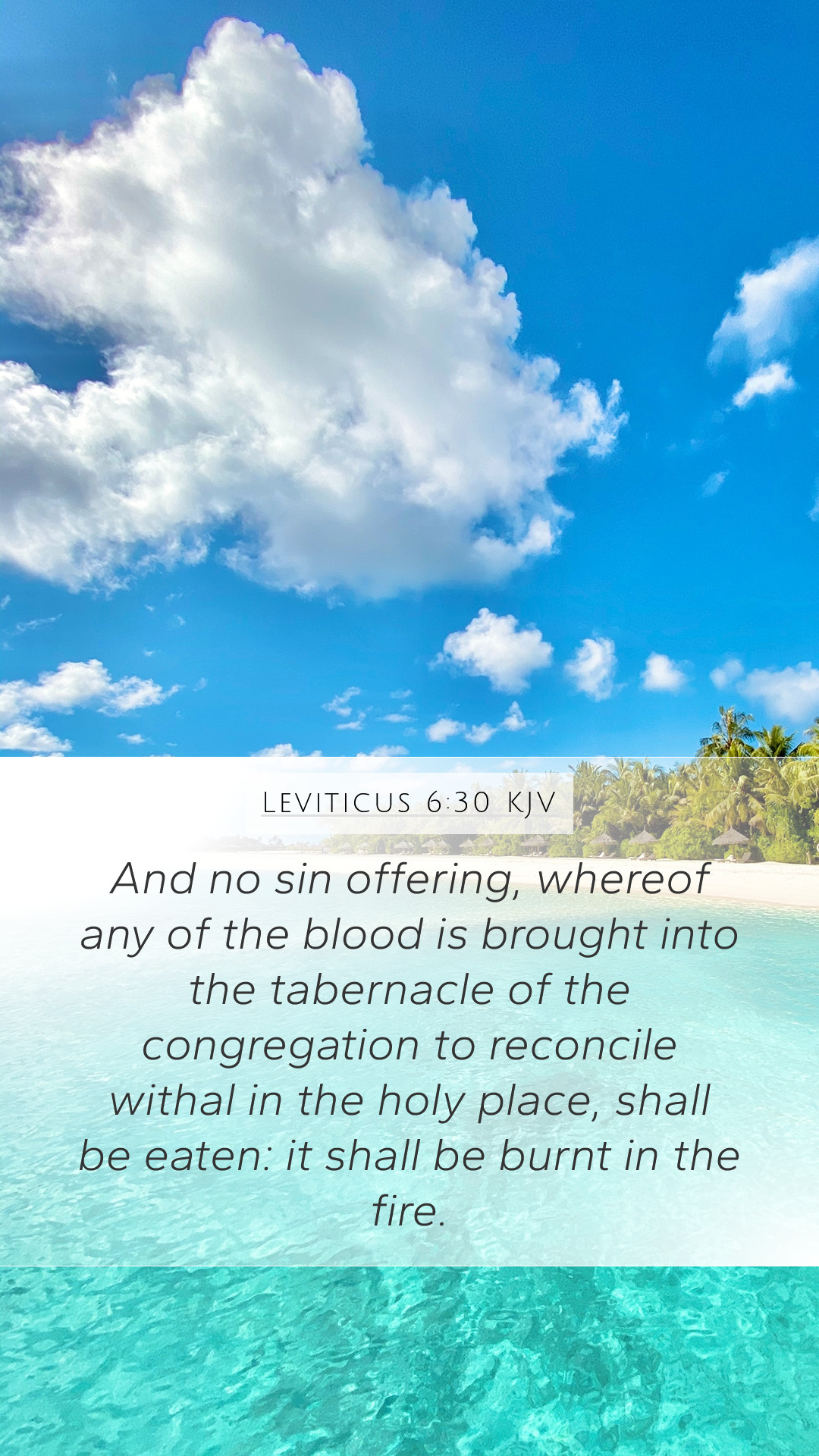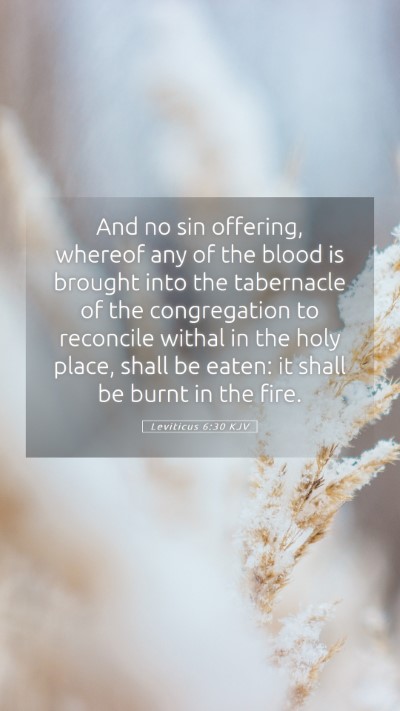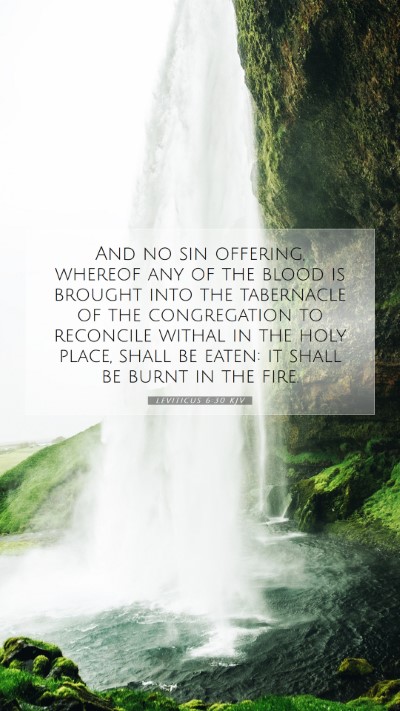Bible Verse Meaning: Leviticus 6:30
Leviticus 6:30 states: "And no sin offering, whereof any of the blood is brought into the tabernacle of the congregation to reconcile withal in the holy place, shall be eaten: it shall be burned in the fire."
Overview
This verse provides specific instructions regarding the handling of sin offerings in the Israelite worship system. It emphasizes the sacred nature of these offerings and the importance of maintaining proper ritual purity in the tabernacle.
Bible Verse Interpretations
To understand the significance and meaning of this verse, we will draw insights from several well-respected public domain commentaries:
Commentary Insights
-
Matthew Henry:
Matthew Henry highlights that the sin offering is completely holy and is not meant for human consumption. The act of burning the offering signifies complete dedication to God and separation from common use. This indicates that sin is a serious matter before God, and the atonement process through sacrifices signifies deep spiritual truths.
-
Albert Barnes:
Albert Barnes elaborates on the sacrificial system, explaining that the blood represents life and atonement. Therefore, the handling of the sin offering, particularly regarding what is done with the blood and the flesh, is crucial. This verse teaches the Israelites about the gravity of sin and the necessity for comprehensive obedience to the laws established by God.
-
Adam Clarke:
Adam Clarke emphasizes the distinction between different types of offerings. He notes that sin offerings are specifically for atonement and, once they have fulfilled their purpose, must be completely consumed by fire, symbolizing that the sacrifice has completed its role in the reconciliation between God and humanity. Clarke points out that this exclusion from being eaten serves as a reminder of God's holiness and the seriousness of sin.
Understanding Scripture
This verse, Leviticus 6:30, deeply connects with the sacrificial system of ancient Israel and the theological implications of sin and redemption. The prohibitions regarding the consumption of the sin offering serve as a reminder of God's holiness and the reverence required in approaching Him. The act of burning the offering symbolizes the complete and unreserved commitment required in dealing with sin.
Application of the Verse
For contemporary readers, understanding Leviticus 6:30 provides insights into the nature of sin and requires an examination of our lives through Scripture. It encourages believers to acknowledge the seriousness of sin and the significance of atonement through Christ. This perspective can be particularly valuable in Bible study groups, while preparing lessons or exploring topics on the nature of sin and redemption.
Bible Study Insights and Resources
Many Christians seek deeper Bible study insights regarding sacrifices and their meanings. This verse presents rich opportunities for Bible study lessons and discussions surrounding themes of atonement and holiness. Employing Bible study tools and resources can assist in understanding this and similar passages.
Cross References
- Hebrews 9:28: Discusses Christ's sacrifice for sin.
- Leviticus 4:12: Explains the handling of sin offerings.
- Exodus 29:14: Details the burning of offerings outside the camp.
Conclusion
In conclusion, Leviticus 6:30 serves as a profound reminder of the importance of holiness and the seriousness of sin offerings. The insights gleaned from the commentaries provide a comprehensive understanding, helping believers to grasp the significance of these ancient practices in the light of Christ’s ultimate sacrifice. This equips Bible study participants with understanding Scripture and how to apply biblical principles to everyday life.


